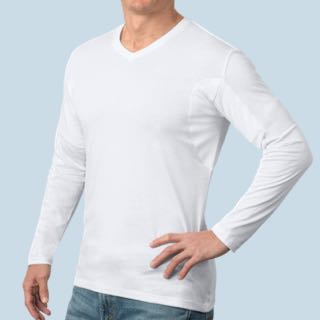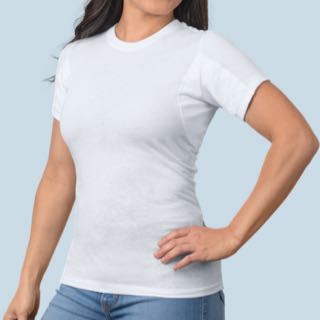How to Choose the Right Prescription Antiperspirant
You sweat constantly. Nothing you find on the drugstore shelves seems to work. You need something stronger.
Prescription antiperspirant could be the answer. But they’re potent, and the reviews and information out there are conflicting. How do you choose the clear-cut winner?
What Is Prescription Antiperspirant?
The term “prescription antiperspirant” covers both antiperspirants you can only get from a doctor and the clinical-strength over-the-counter (OTC) antiperspirants from the drugstore.
All antiperspirants contain aluminum chloride — it’s the main active ingredient that reduces sweating. Where deodorant is technically a cosmetic, the U.S. Food and Drug Administration (FDA) classifies all antiperspirants as a drug.
What makes an antiperspirant more potent is the amount and type of aluminum compound.
Many OTC antiperspirants are available in a clinical-strength version that offers more sweat protection than standard deodorant. Secret, Gillette, Dove and Degree all offer standard and clinical-strength antiperspirants.
The difference is subtle but effective. For example, the standard Secret antiperspirant contains 19 percent aluminum. The clinical-strength version has 20 percent — the maximum percentage the FDA allows in over-the-counter antiperspirants.
Prescription antiperspirants contain a higher percentage of aluminum chloride than their drugstore counterparts (around 20 percent). They also contain aluminum chloride hexahydrate, a different, stronger aluminum compound than over-the-counter options.
How to Choose the Right Prescription Antiperspirant
Whether or not you need a prescription antiperspirant depends on how much you sweat.
When choosing an antiperspirant, it’s natural to jump to the most potent option first — don’t do it. While some contain higher percentages of aluminum chloride, the right one for you may not be the strongest.
Start slowly. Prescription antiperspirants are more expensive, can be abrasive on your skin and require tedious, careful application compared to regular deodorant. While it can be a great solution, make sure you try the over-the-counter options first before seeking out a prescription.
However, if you’re always dealing with sweaty pits, changing your shirt multiple times a day or facing other signs of excessive sweating, it may be time to try a stronger option.
Types of Prescription Antiperspirants
Here are a few of the top prescription and clinical-strength antiperspirants:
- Xerac AC: This topical prescription antiperspirant works on the hands, feet, scalp and underarms. Apply Xerac AC before bedtime, and be sure to cover the application area with a shirt, gloves, socks or shower cap.
- Odaban: Available as a spray, Odaban is used for general and axillary hyperhidrosis. While it has 20 percent aluminum chloride, it’s not as abrasive as other prescription antiperspirants.
- Driclor: Driclor is a roll-on antiperspirant with 20 percent aluminum chloride. Doctors typically prescribe Driclor for axillary and palmoplantar hyperhidrosis (hands and feet).
- Drysol: A prescription-only option, Drysol is on the stronger side with 20 percent aluminum chloride.
- CertainDri: One of the most highly rated antiperspirants available without a prescription, CertainDri contains 12 percent aluminum chloride.
- ZeroSweat: Another over-the-counter option, ZeroSweat is applied once a week.
- SweatBlock: SweatBlock is antiperspirant wipes that last up to seven days. Each wipe has 14 percent aluminum chloride.
- Zeasorb Absorbent Powder: Zeasorb’s absorbent powder is commonly used to treat pedal hyperhidrosis (excessive feet sweating).
- Formalaz, Formalyde-10 and Lazer Formalyde: These prescription treatments are also prescribed for heavy foot sweating.
Prescription Antiperspirant Use & Tips
Unlike deodorant, strong antiperspirants require careful, methodical application (i.e., you can’t just swipe it on and go). Here are a few final tips to help you find success.
Talk With Your Doctor
Depending on how much you sweat and where, your doctor may recommend a custom solution. The type of hyperhidrosis also matters — check with your doctor first before trying a prescription or clinical-strength antiperspirant.
Follow Application Instructions Closely
Prescription antiperspirants are strong. They can irritate sensitive skin, especially if misused. Make sure you speak with a doctor if you have any concerns.
- Application time: For the best results, apply prescription antiperspirants at night.
- Frequency: Some prescription antiperspirants instruct you to apply them weekly, biweekly or daily. Follow the application directions to get the most sweat protection. Over time, you may be able to reduce the number of applications per week.
- Prepping your pits: Clean and dry your skin before applying antiperspirant. Never swipe on prescription antiperspirant over cuts or scrapes that could get irritated.
Back Up Your Antiperspirant With a Thompson Tee
There are times when all the deodorant in the world can’t hold back your sweaty pits. Get even more sweat protection with Thompson Tee — the only sweat proof undershirt guaranteed to shield underarm sweat marks and stains.
With built-in armpit sweat guards that completely absorb and evaporate sweat, the Thompson Tee blocks moisture from reaching your outer layer. Guaranteed or your money back. Try your Thompson Tee risk-free today.


